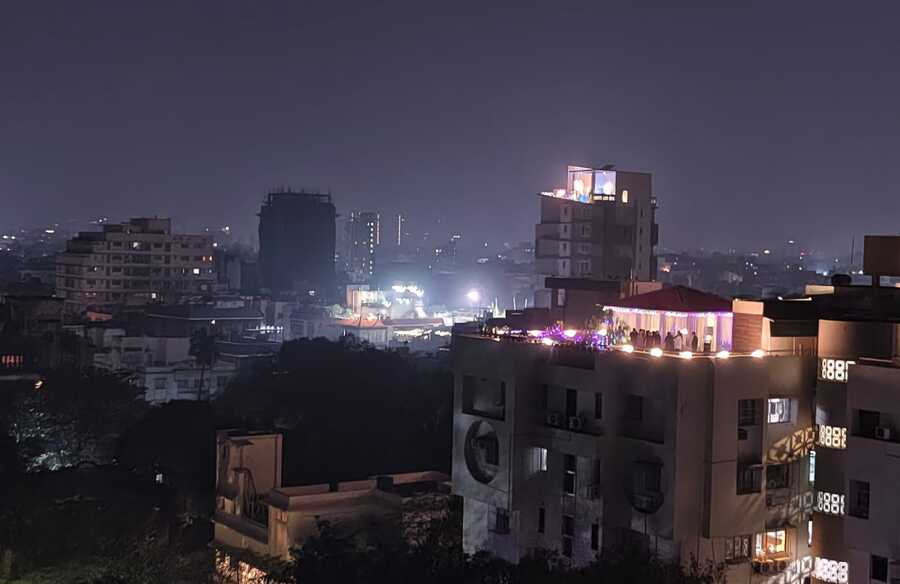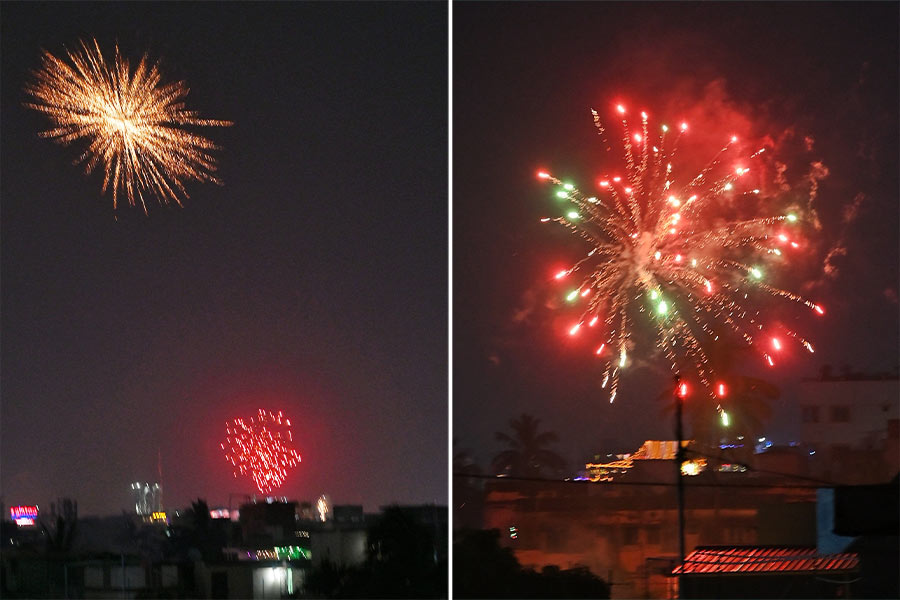As Kolkata bade goodbye to 2024 and welcomed 2025, noise pollution in the city quite literally hit the roof.
Green activists have alleged late-night violation of noise pollution at rooftop parties in various areas of Kolkata on Christmas Eve. The police confirmed blatant violation of noise norms in high-rises at Alipore, Ballygunge Circular Road, Baguiati and other areas.
On the night of January 1, too, similar violation was reported at a high-rise in the upscale Bondel Road area of Ballygunge well into the wee hours of Thursday. The trend is feared to continue throughout January, when the holiday season ends.
Sabuj Mancha, a civil society-driven environmental platform, has recently written to the senior officers of both the West Bengal and Kolkata police, highlighting several forms of noise violation during the ongoing festive period, including cases of rooftop violations.
“On behalf of Sabuj Mancha … we humbly submit that during the days of Christmas and New Year, people are worried about an abrupt increase of noise and air pollution due to fireworks and loud speakers,” wrote Mancha secretary Naba Datta, also an acclaimed environment activist. Datta added that the platform was “aggrieved to note that a large number of parties and especially rooftop parties are being held violating the noise level norms”.
The letters, addressed to the commissioner of Kolkata police and the director-general of West Bengal police, the copies of which are in the possession of this correspondent, have been written on December 24 but clearly, they have proved hardly any deterrent to noisy roof parties.
“It’s literally a nightmare. From the third week of December, just before Christmas and throughout January, such largely open-air rooftop parties are being held in our area that continue well past midnight. Complaints to both Lalbazar and the local police station hardly yield results,” complained quite a few senior couples residing in the Dover Road and Ballygunge Circular Road areas, preferring anonymity.
“It’s a fact that we have received a few complaints of rooftop noise violation in multi-storeyed buildings holding parties, and immediately sent our officers and stopped the microphones,” said a senior officer of Ballygunge police station.
A senior officer of Alipore police station admitted that several late-night rooftop parties, often with DJs performing live, were held in high-rises in the area with high-pitch music playing but claimed that they had received no complaints and, hence, could not take action.
“According to the law, the onus of acting against such noise violations (read, late night noisy rooftop parties) lie with the police. We send regular reminders to them about the prevailing noise norms,” pointed out a senior West Bengal Pollution Control Board (WBPCB) official.
Nobody considers noise violations as crime
Biswajit Mukherjee, a retired chief law officer of WBPCB and former Calcutta High Court-appointed special officer on noise pollution, pointed out that such rooftop noisy parties break several norms.
“First of all, any use of a microphone, at any time of the day, needs police permission. Clearly, such rooftop parties like in most other noise pollution-related cases, do not care to take such permission. Secondly, after 10pm, there is a blanket ban on any microphone use, other than emergencies, where the sound travels beyond the user’s own area. You cannot make anybody a captive listener. Unfortunately, despite clear court directives and noise rules in place, such violations are continuing unabated,” rued Mukherjee.
The former official also pointed out that the police do not need a complaint to take action and can act suo motu in case of noise violation and in case of failure to take appropriate action, the onus, as per law, lies with the officer in charge of the police station concerned.
The Noise Pollution (Regulation and Control) Rules, 2000 mandates that the noise level in the surroundings should not increase more than 10 decibel compared to the normal, when the microphones are used even in any residence before 10pm.
“Norms remain in the files but who cares? Neither the violators nor the police considers noise norm violations as crimes though the law mandates five years’ imprisonment and fine up to Rs 1 lakh can be slapped on such violators,” said Mukherjee; the noise whistle-blower; who has sent several letters to both the West Bengal and Union government administration, and even moved the green court over the issues, with little results so far.
“The unfortunate part is even when police respond to the complaint, they try to mediate and settle it, rather than taking actions as per law such as confiscating the musical or electronic instruments or registering FIRs against the violators, which further emboldens them,” said a green activist.
“Such administrative, particularly police, failures have led to 14 people turning noise martyrs in West Bengal since 1997 and, more than a hundred, including children, being killed in illegally running firework factories mushrooming all over the state,” Mukherjee said.



